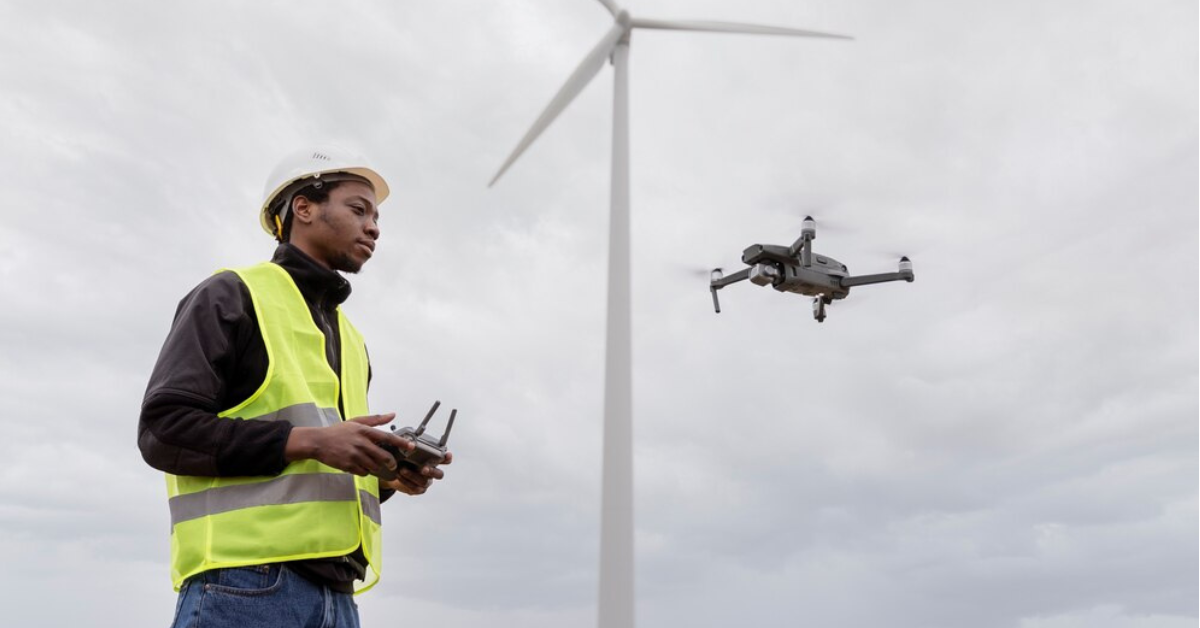Top 15 Drone Operator and Analyst Interview Questions and Answers
Drones have revolutionized industries, from agriculture and construction to media and surveillance. As a drone operator and analyst, you are expected to have technical expertise in flying drones and analyzing the data they collect. To help you ace your interview, here are the top 15 drone operator and analyst interview questions and answers that showcase your skills and knowledge. 15 Drone Operator and Analyst Interview Questions and Answers 1. What inspired you to become a drone operator and analyst? This question gauges your motivation for pursuing this career. Answer: I’ve always been fascinated by cutting-edge technology and its applications. Drones allow me to combine my interests in technology and data analysis to solve real-world problems across diverse industries. 2. What types of drones are you experienced with? Highlight your hands-on experience with different drone models. Answer: I’ve worked with commercial drones like DJI Phantom and Matrice for aerial photography and mapping, as well as fixed-wing drones like eBee for large-scale surveying projects. 3. What certifications do you hold for operating drones? Demonstrating your qualifications is crucial. Answer: I am FAA Part 107 certified (or equivalent in my country) and have completed specialized training in aerial mapping and thermal imaging. These certifications ensure safe and legal drone operations. Read Also: Top 15 Hydrologist Interview Questions and Answers 4. How do you plan a drone flight mission? This tests your technical and organizational skills. Answer: I begin by assessing the project requirements, studying the flight area using tools like Google Earth, and identifying potential hazards. I ensure all equipment is operational, upload flight plans to the drone, and monitor weather conditions for optimal flight safety. 5. Can you explain georeferencing and its importance in drone operations? Employers want to assess your data analysis skills. Answer: Georeferencing links aerial imagery to real-world coordinates, ensuring accuracy in maps and models. It’s crucial for applications like surveying, where precise spatial data is needed. Read Also: 16 Geomatics Engineering Jobs in the United States 6. How do you ensure the safety of your drone operations? Safety is a critical aspect of drone operations. Answer: I conduct pre-flight checks, follow aviation regulations, and maintain safe distances from people, buildings, and restricted areas. I also use apps like AirMap to check for airspace restrictions. 7. What software do you use for drone data analysis? Showcase your technical proficiency. Answer: I use Pix4D and DroneDeploy for mapping and 3D modeling, as well as GIS software like ArcGIS for spatial analysis. For thermal imaging, I rely on FLIR tools to interpret infrared data. Read Also: Top 15 Aerial Photogrammetrist Interview Questions & Answers 8. Describe a challenging project and how you managed it. Employers want to see your problem-solving abilities. Answer: In a recent project, weather changes interrupted a flight schedule. I adapted by splitting the mission into smaller sessions, ensuring data collection during clear weather. This approach minimized delays and maintained data quality. 9. How do you troubleshoot technical issues with drones? This question evaluates your technical problem-solving skills. Answer: I first identify the issue, whether it’s a hardware malfunction or software error. For hardware issues, I inspect components like propellers and sensors. For software, I check firmware updates and recalibrate the system. Read Also: Geomatics Engineering: Career, Job, & Salary in 2025 10. How do you interpret and present data collected by drones? Communication is key for effective reporting. Answer: I process raw data into actionable insights using analytics tools. For example, I create maps, 3D models, and heatmaps, presenting them in reports or visual presentations tailored to the client’s needs. 11. How do you ensure data security during drone operations? Data security is a growing concern in drone applications. Answer: I use encrypted storage for drone data, secure communication protocols during data transfer, and ensure compliance with regulations like GDPR when handling sensitive information. Read Also: GIS Analysis Services: Unlocking the Power of Spatial Data 12. What industries have you worked in as a drone operator? Highlight your versatility across sectors. Answer: I’ve worked in industries like construction for site monitoring, agriculture for crop health analysis, and energy for inspecting wind turbines and solar panels. Each project sharpened my skills in data collection and analysis. 13. How do you keep up with advancements in drone technology? Show your commitment to staying updated. Answer: I follow industry blogs, attend drone expos like InterDrone, and participate in online forums. Staying connected with professional organizations like AUVSI helps me learn about emerging trends and technologies. Read Also: Top 15 Imagery Analyst Interview Questions & Answers 14. How do you handle emergencies, such as losing connection with a drone mid-flight? Employers want to see your ability to act under pressure. Answer: I always program a safe return-to-home function. If a connection is lost, I follow protocol to regain control, monitor the drone’s last known position, and prioritize safe landing to avoid harm. 15. Where do you see the future of drone technology heading? This question tests your industry insights. Answer: The future lies in autonomous drones powered by AI, enabling real-time data collection and analysis. We’ll also see increased use in industries like logistics, disaster response, and urban planning. Conclusion Preparing for these top 15 drone operator and analyst interview questions and answers will help you showcase your technical expertise, analytical skills, and ability to handle real-world challenges. Focus on tailoring your responses with specific examples to leave a lasting impression. FAQs Q1: What qualifications do you need to become a drone operator? You typically need certifications like FAA Part 107 (or local equivalents), along with training in drone technology and data analysis. Q2: What industries hire drone operators? Industries include agriculture, construction, energy, media, public safety, and environmental monitoring. Q3: What is the average salary of a drone operator? Drone operators earn an average annual salary between $50,000 and $80,000, depending on experience and industry.
